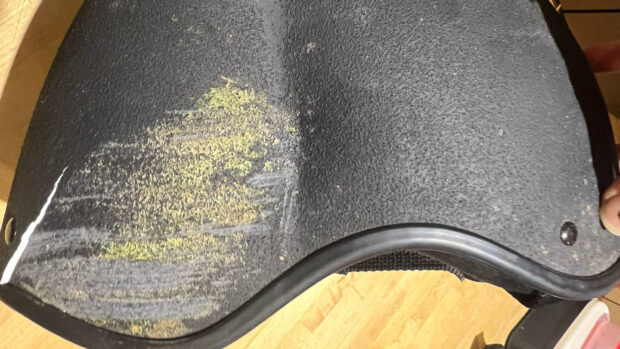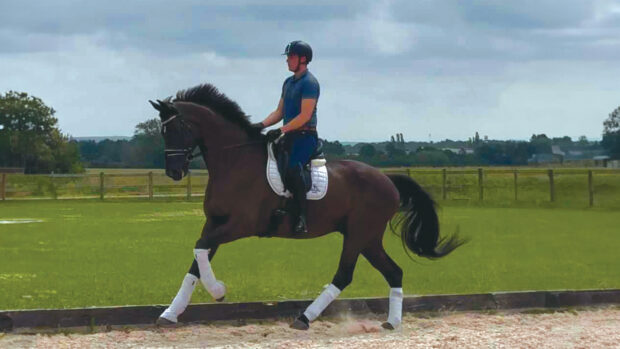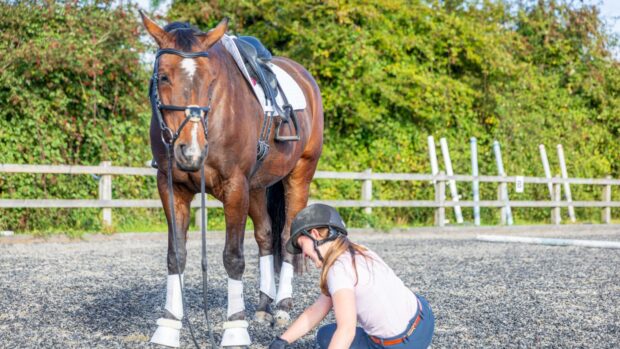Concussion has been at the forefront of sports news in recent months and while it is rugby that tends to steal the headlines, the nature of horse sports and the propensity for rider falls means it is a common injury which often goes undiagnosed within equestrianism.
A traumatic brain injury such as concussion is an invisible injury and because it cannot be easily seen, less attention is often paid to it despite the consequences potentially being more severe than other injuries. This, coupled with the common school of thought in equestrianism that you should remount as quickly as possible after a fall to ensure you don’t lose confidence, can be a recipe for disaster.
While remounting after suffering an innocuous fall can be a positive step, if the rider is showing any signs or symptoms of concussion they should not remount.
“Sixty-one percent of coaches have seen a parent pressure a young person into remounting after a fall,” says sports therapist Katy Stephens, owner of Bouncing Back Injury Clinic, who educated coaches about concussion at The Pony Club Coaching Conference at Hartpury College earlier this month. “It is important to be able to recognise the symptoms of concussion and prevent riders from remounting or remove them from the saddle if you have any doubts.”
Symptoms of concussion include drowsiness, headaches, nausea, change in emotional responses, sensitivity to light and issues with balance. While these symptoms can display themselves immediately they can also be delayed in their onset so it is important to monitor a rider for a few days after a fall and follow up if any of these symptoms start to develop.
“Concussion shouldn’t be feared as it can normally be dealt with by quality and appropriate care at home,” explains Katy. “What is more serious is diffuse cerebral swelling, also known as second-impact concussion, a second concussion which occurs minutes, days or weeks after another episode of concussion that has not yet healed. This is particularly dangerous if the first concussion wasn’t diagnosed and key professionals aren’t aware of the initial injury.”
Long term effects of repeated episodes of concussion include memory loss, persistent headaches, brain damage, depression and Alzheimer’s.
Children are more susceptible and vulnerable to concussion due to the fact that their brains are smaller and have more room for movement within their skull. Annual statistics from the NHS showed that from 175,000 admissions which had a primary diagnosis of concussion, 33-50% of them were in children under the age of 15.
Article continues below…
You might also be interested in:

‘Like riding after drinking’: why riders must take concussion seriously
The dangers of continuing to ride with concussion have been highlighted in a short film

Subscribe to Horse & Hound magazine today – and enjoy unlimited website access all year round
Concussion is not only caused by a direct blow to the head, face or neck, it can also occur when a blow is received elsewhere on the body and an impulsive force transmits through to the head. Even if you have fallen off your horse and landed on your feet, the force can still be enough to cause concussion.
“If you are teaching a rider who has a fall and you are unsure whether they have concussion ask them some long- and short-term memory questions like ‘which pony are you riding today?’ and ‘what did we learn in our lesson last week?’” says Katy. “Make sure you know your riders so you can identify any behaviour or personality changes which could be symptomatic of concussion.”
Concussion is not an easy injury to diagnose, but if you are in any doubt as to whether someone you know has suffered from it following a fall then they should not be allowed to ride a horse until they have sought medical advice.
For all the latest equestrian news and reports, don’t miss Horse & Hound magazine, out every Thursday




